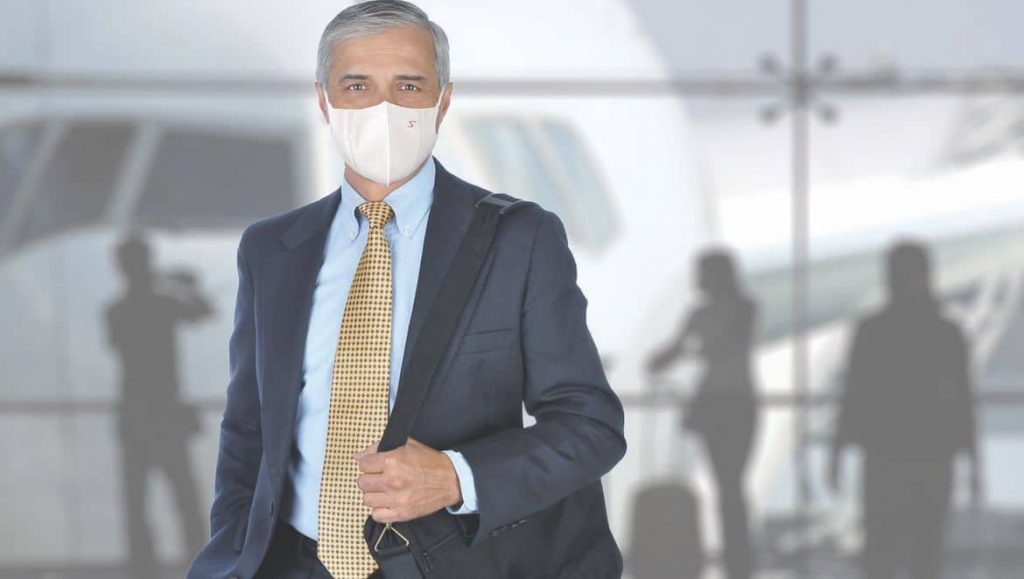 For many months now, industry bodies and airlines have pushed for the introduction of ‘health passes’ and ‘vaccine passports’ to aid in the return of post-COVID international travel.
For many months now, industry bodies and airlines have pushed for the introduction of ‘health passes’ and ‘vaccine passports’ to aid in the return of post-COVID international travel.
The International Air Transport Association has been running trials in the Middle East and Europe of its own ‘Travel Pass’, which stores verified health information, including COVID test results and vaccination status, all within a smartphone app.
European governments, including that of Sweden and Denmark, are also looking into digital health pass technologies, however have noted that these will likely rely upon an “international standard” for the validity of documents kept within the pass.
Meanwhile, in the US, President Joe Biden is reportedly making moves to “assess the feasibility” of such digital health information passports.
The idea of nations and governments requiring vaccination information prior to travel to a certain country is not brand new.
For decades, people travelling to some countries have had to prove that they have been vaccinated against diseases such as yellow fever, rubella and cholera, and often receive a signed and stamped ‘yellow card’ as proof.
However, the global digital health pass would take this to a whole new level, requiring an integration of encrypted and secure information across any and all borders.
Realistically, the biggest challenge in the feat of global health information passports is creating something that can and will be accepted by airlines and governments around the world, while protecting people’s private health data.
There is also the issue about compiling verified medical information from trusted sources around the globe, in an effort to ensure all information provided is legitimate.
“There are ways this could be done right or done terribly wrong and the wrong ways could lead us to a techno dystopia,” said Jenny Wanger, director of programs at the Linux Foundation.
Along with these challenges, there is also the issue of time.
While industry experts and software developers agree that there are technological solutions to this problem, creating an application that can be scaled globally, with systems in place to protect people’s data and privacy, is going to take time.
“The global passport system took 50 years to develop,” said Drummond Reed, chief trust officer for software company Evernym.
“Even when they wanted to add biometrics to that to make it stronger, that took over a decade to agree on just how you’re going to add a fingerprint or a facial biometric to be verified on a passport.
“Now, in a very short period of time, we need to produce a digital credential that can be as universally recognised as a passport and it needs an even greater level of privacy because it’s going to be digital.”
However, accomplishing the task is going to be essential to restarting the international travel secretary, according to Zurab Pololikashvili, secretary general of the United Nations World Tourism Organisation.
“One key element vital for the restart of tourism is consistency and harmonization of rules and protocols regarding international travel,” Pololikashvili said in an email to the New York Times.
“Evidence of vaccination, for example, through the co-ordinated introduction of what may be called ‘health passports’ can offer this. They can also eliminate the need for quarantine on arrival, a policy which is also standing in the way of the return of international tourism.”
Dakota Gruener is executive director of ID2020, a global public-private partnership, and one of the experts tasked with establishing global standards for digital vaccination certificates by the WHO.
She said that the notion of health passports have been supported by governments, airlines, industry groups, customs and border control agencies, and travellers alike.
She also said that the concept of digitising health data for convenient sharing of information has been in the works for a long time.
“Long predating COVID, we were working on the intersection of digital credentials and immunisation,” Grunner said.
However, she added: “It’ll be years before vaccines are universally available on a global level and thus widespread testing is going to continue and must continue alongside vaccination to enable a safe and equitable return to travel and other public activities.”




